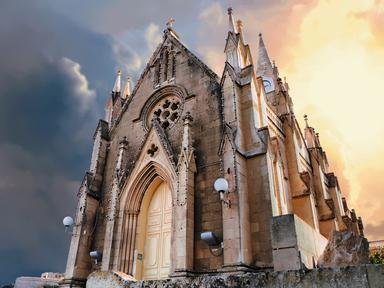Quiz Answer Key and Fun Facts
1. Shrove Tuesday is another name for Holy Tuesday.
2. In Roman Catholicism and some other Christian traditions, Holy Tuesday commemorates the parable of the ten virgins. In the parable, who are the ten virgins awaiting?
3. Holy Tuesday also commemorates the Parable of the Talents. What is a "talent"?
4. In the Eastern Orthodox church, on Holy Tuesday, a canon consisting of three odes is chanted. What 8th century bishop wrote this triode?
5. Which of the following is NOT another name for Holy Wednesday?
6. In what country is Holy Wednesday sometimes called "Skaredá středa," or "Ugly Wednesday"?
7. In some Christian traditions, Holy Wednesday commemorates the bargain of Judas with the chief priests to betray Jesus. How many silver coins did Judas receive in exchange for his betrayal?
8. In the Byzantine Rite, Holy Wednesday commemorates the sinful woman who anointed Jesus's feet and the "Parable of the Two Debtors," which Jesus tells to his host after the anointing. In which synoptic Gospel, traditionally thought to have been written by a companion of Paul, does this scene appear?
9. Some Anglicans hold a "Tenebrae" service on the evening of Holy Wednesday. What does "Tenebrae" mean in Latin?
10. In what Southern European island country is Holy Wednesday known as "Wednesday of Shadows"?
Source: Author
skylarb
This quiz was reviewed by FunTrivia editor
looney_tunes before going online.
Any errors found in FunTrivia content are routinely corrected through our feedback system.

